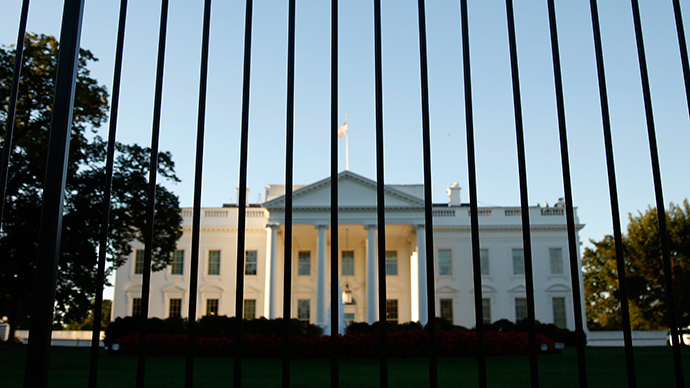White House wants to expand online anti-ISIS campaign

The White House is looking to expand the State Department agency tasked with countering propaganda coming from the so-called Islamic State as the extremist group strives notwithstanding ongoing efforts from the United States and its allies.
As militants calling themselves the Islamic State (IS, also known as ISIS, or ISIL) continue a bloody campaign to control a huge swath of the Middle East, Obama administration officials told the New York Times the White House plans to announce adjustments to the Center for Strategic Counterterrorism Communications — a small State Department entity created in 2009 as a means to “coordinate, orient and inform government-wide foreign communications activities targeted against terrorism and violent extremism.”
The CSCC made headlines last year when details about the agency’s social media campaigns surfaced, and information became available about the United States government’s efforts to counter the slick production values and social media savvy that has allowed the Islamic State to further its ideologies around the world, on and off the web. As US President Barack Obama’s anti-IS strategy comes under fire, the White House will tell attendees at a counterterrorism conference underway in Washington, DC this week that the administration is considering adjustments that would allocate new resources to the State Department agency.
Times journalist Eric Schmitt reported on Monday that the White House wants to expand the center “to harness all the existing attempts at counter messaging by much larger federal departments, including the Pentagon, Homeland Security and intelligence agencies.” They also want to establish connections that would help the CSCC team coordinate with foreign allies, NGOs and Islamic leaders opposed to the militant group’s methods and ideologies.
Details of the administration’s proposed changes will be presented during three days of counterterrorism discussions in DC that started on Tuesday, the Times reported. The conference is expected to attract statesmen from 60 foreign countries.
READ MORE:‘Trolling’ among tactics used by US State Dept against ISIS
Richard Stengel, the Obama administration official who manages the CSCC as undersecretary of state for public diplomacy and public affairs, told the Times he believes America’s efforts to counter the group’s propaganda so far could have been better coordinated.
“We’re getting beaten on volume, so the only way to compete is by aggregating, curating and amplifying existing content,” he told the paper.
According to Stengel, the proposal would bring together social media accounts of “embassies, consulates, media hubs, bureaus and individuals, as well as similar accounts operated by the Pentagon, the Homeland Security Department and foreign allies.” It is hoped that combining resources will prove more effective at curbing the spread of the Islamic State.
READ MORE:State Dept. attempt to fight ISIS online with gruesome videos brings backlash
Schmitt reported this week that IS and its supporters generate upwards of 90,000 tweets and social media postings per day. Walid Phares, a Middle East adviser to US Congress, told Canada’s CTV News Channel this week that he expects the group will recruit 24,000 new members during the coming months, despite a campaign of air strikes waged by the US and allied partners. On Sunday, Omar al-Zanki, the interior minister in the official Libyan government, warned Reuters that the group continues to pose “a big, big threat” and it is growing.
The Obama administration’s efforts to counter the so-called Islamic State, meanwhile, are proving to be unpopular. The results of a new poll conducted by CNN/ORC and published this week reveal that the majority of Americans — some 57 percent — don’t approve of the president’s handling of the anti-IS operation. More than three-quarters of the people polled said they do, however, want Congress to approve the Authorization for Use of Military Force order that President Obama recently proposed to lawmakers. If favored by the House and Senate, the AUMF will outline new measures aimed specifically at tackling the IS crisis.












